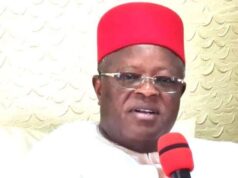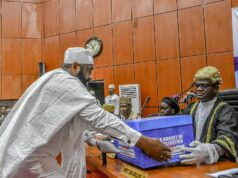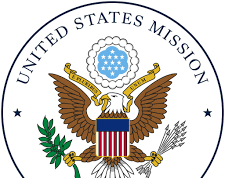Oxfam Nigeria, a non-profit organisation, says the country is demanding urgent and equitable reforms to fix its strained financing system, as developing countries prepare for the fourth International Conference on Financing for Development (FfD4).
In a statement on Tuesday following the release of a policy brief, titled ‘Financing for Development in Nigeria: Sectoral Context and Insights for the Fourth International Conference’, the nonprofit said the brief outlines Nigeria’s key challenges and what it plans to push for at the global event.
According to Oxfam, while some progress has been made, Nigeria still struggles with low domestic resource mobilisation, growing exposure to climate risks, and deep inequalities within the global finance system.
“The financing gap for key development sectors such as education, health, agriculture, and climate adaptation and resilience continues to be alarmingly low. Education funding has fallen to just 5.11% of the national budget in 2023, well below the UNESCO thresholds of 15 – 20%, and Nigeria has over 10 million children out of school, the largest number in the world,” Oxfam said.
“Similarly, Nigeria’s health sector is also at a tipping point. Health spending stands at only 3.9% of GDP. In addition, over 70% of Nigerians pay for health care out of pocket, a reality that is knocking millions of people into poverty.
“Following recent cuts to U.S. health aid, Nigerian lawmakers approved an emergency $200 million allocation to sustain disease control programs. However, systemic underfunding continues to threaten the country’s ability to build resilient health systems.
“Agriculture, which hires over 35% of all employees in Nigeria, receives less than 3% of the federal budget, or less than a third of the 10% target of the Maputo Declaration. One major reason for the level of food insecurity is due to the food income gap arising from loss of harvest, and dependency on too many imports, as Nigeria imports over $5 billion in food annually.
“As well, authorities are still grappling with the $100 billion (in excess) deficit in infrastructure that continues to reduce and cripple industrial productivity and service delivery.
“The climate impacts have compounded the need for financing. Nigeria only mobilised about $704 million of annual climate finance, against the projected requirement of $177 billion to meet the requirements of the Nationally Determined Contributions (NDCs).
“Between 2015 and 2021, 75% of the total climate finance received into Nigeria was concessional debt, therefore offsetting the fact that Nigeria was receiving loans despite contributing minimally to global emissions.”
The report also identified systemic global inequities, including illicit financial flows (IFFs) of about $18 billion annually in Nigeria, as barriers to sustainable development.
It further said the current debt service ratio exceeds 70 percent of government revenue, tightening the fiscal space required for long-term investments in people and infrastructure.
Oxfam said Nigeria will push for several reforms at the FfD4, including a fairer global tax system, new rules to stop illicit financial flows, and reforms that give African countries more say in international finance decisions.
The nation is also expected to seek more grant-based climate finance, rather than loans, and support for innovative financing tools like green bonds, diaspora bonds, debt swaps, and results-based funding at subnational level.
Oxfam said Nigeria will ask for better domestic resource mobilisation through digital tax platforms, reduced reliance on oil, and support for state-level finance units and civil society groups that can monitor public spending.
John Makina, country director of Oxfam in Nigeria, said the global meeting, slated for June 30 to July 3, must lead to real results.
“Nigeria cannot build resilient futures on broken systems, and FfD4 must go beyond promises,” Makina said.
“It must deliver justice for every child out of school, for every farmer displaced by floods, and for every family trapped by preventable health crises.”
Oxfam said Nigeria’s presence at the FfD4 summit would show a strong commitment to both internal reforms and global accountability, from fair tax policies to climate justice, aiming to promote a new financing era based on fairness, inclusion, and results.
It added that the upcoming conference, hosted by the United Nations Department of Economic and Social Affairs (UNDESA), offers a once-in-a-decade chance to reshape the global financing system.




